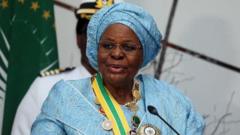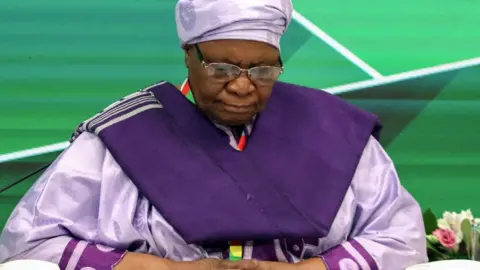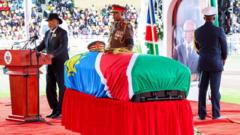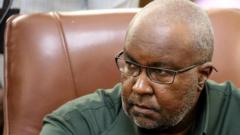Namibia is set to scrap university fees by 2026, as announced by President Netumbo Nandi-Ndaitwah during her inaugural state address. The president, who made history as the first female leader of the country, revealed that students would no longer have to worry about registration or tuition fees at public universities and technical colleges.
However, concern arises as she indicated there would be no substantial increase in funding for this initiative, raising doubts about its long-term success. The president stated that the shift to free education would occur gradually, with families only responsible for accommodation and related costs for now.
Nandi-Ndaitwah referred to the demands of students, echoing the sentiment of "Fees Have Fallen," reminiscent of the #FeesMustFall protests in neighboring South Africa. While some student organizations praised the announcement, others like the Affirmative Repositioning Student Command (ARSC) criticized it as unrealistic and lacking in detail.
They questioned the specifics of who would benefit—whether it would be only undergraduates or post-graduates—and how the program would be funded. Several observers, including economist Tannen Groenewald, expressed concerns that free education without adequate funding could limit enrollment or cater only to low-income students, echoing frustrations seen in South Africa's earlier initiatives.
As primary and secondary education is already free in Namibia, the move towards accessible higher education is seen as a significant step, but the path ahead remains uncertain.


















